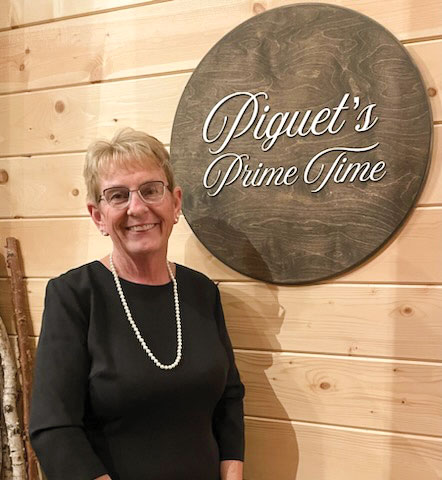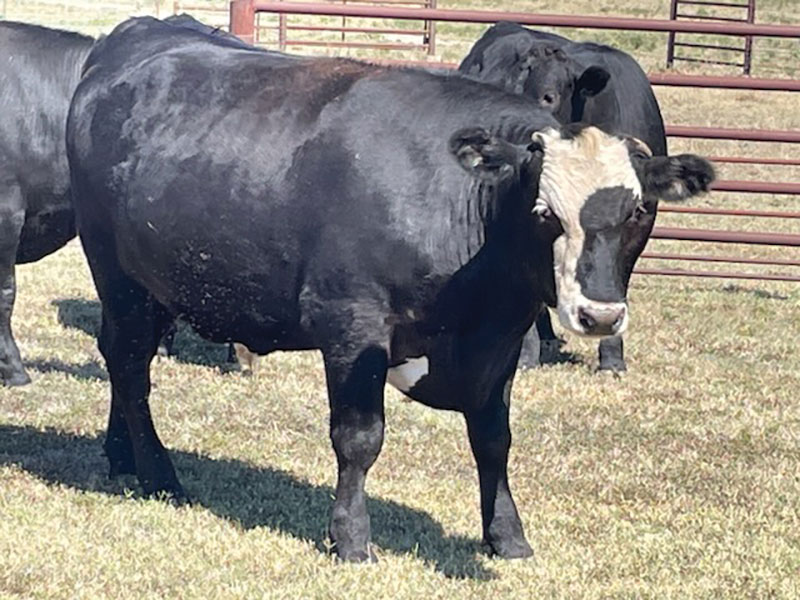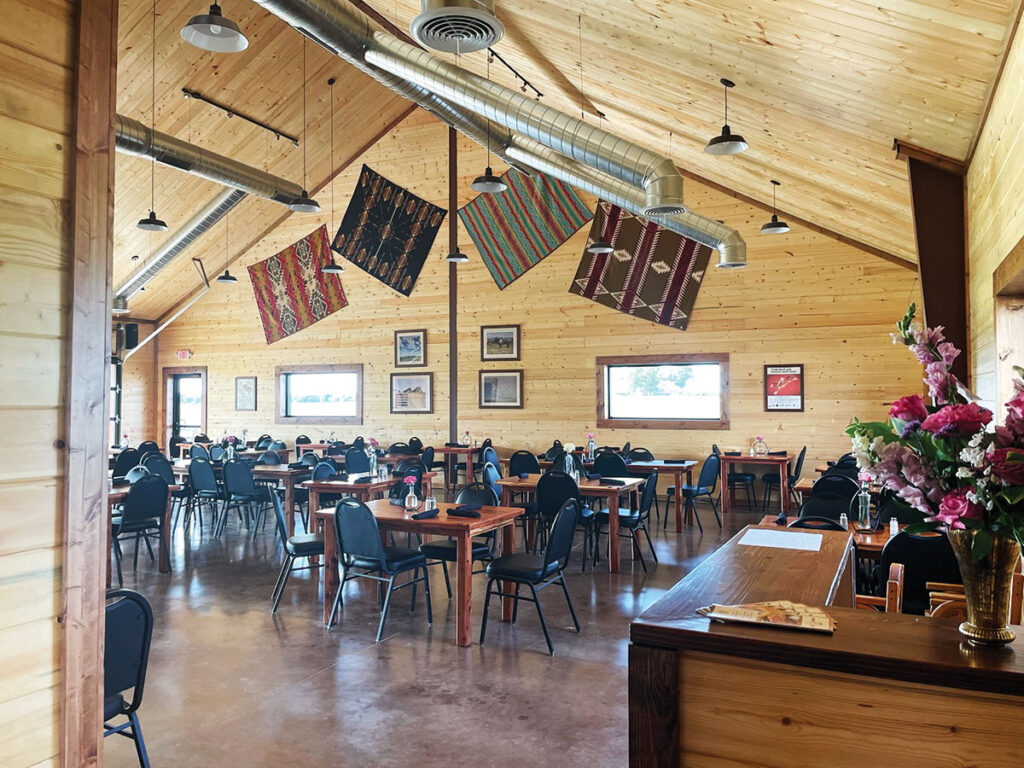
Cattlewoman and restaurant owner Carolyn Piguet offers customers her own brand of beef
VINITA, OKLA. – Most steak restaurants will claim they have the best beef, but with her latest first-generation three-way cross, Carolyn Piguet of rural Vinita, Okla., may truly have the trifecta.
She recently started offering beef from her Hereford/Wagyu/Angus cross herd at her restaurant, Piguet’s Prime Time. As she shared recently in her blog, Carolyn’s cross creates what are “genetically speaking, the top three breeds of cattle trusted for the most high-quality beef.”
These F1 cattle are processed locally, so the farm supports another Northeast Oklahoma agriculture business.
Carolyn’s family has raised Hereford/Angus cattle for many years and recently crossed them for the first time with the restaurant’s local Wagyu provider.
Carolyn constructed the new restaurant on her home farm property; the one-year anniversary is in June. She built the restaurant to provide a more efficient place to operate her catering business and to find a new way to feature high-quality beef. Her catering business was already well-known for her wood-fired steak dinners.
While she is new to owning a restaurant, Piguet has 40 years of education experience, 14 years of catering experience, and a lifetime of experience as a farmer.
Her farm was in her husband’s family, before she and Jerry Piguet were married.
“He was big in it and worked with registered cattle,” Carolyn said.
Jerry started a tent business and would set up tents on their property for livestock auctions before he and Carolynn were married. Carolyn grew up on a farm where the family raised stocker cattle from “calf to cow,” she said.

While Jerry started the family farm, Carolyn has been responsible for running it for at least 11 years.
“I lost my husband five years ago, and he was sick for six years before that,” she explained. A family member still operates the tent business, which comes in handy for the growing number of weddings and other group events the Piguets host on their property.
Over the years, some things have changed on the farm, but she has always kept the herd at about 25 head. Carolyn said she accomplishes this by culling older cattle and adding calves.
The herd is fed a Bermudagrass/fescue mix that grows in their pastures throughout the summer. In the winter months, the herd is fed mostly a high-protein cube. Her finishing feed is grain from a self-feeder. This process creates a more rich and more flavorful marbling in the cattle before harvesting.
Offering locally-sourced food and having decorations from her home in the restaurant is just one way Carolyn combines her love for education, hospitality, and good beef. The concept of farm-to-fork was important in her household and by extension, her community long before it became a culinary trend.
“It has a lot of my home in it,” Carolyn said, adding that being able to operate her catering company from the restaurant makes life a lot more simple.
“It’s nice not to have to pack it all up (and transport it),” she said. “This way, it’s like people are coming to my home.”
While she’s enjoying having her farm and restaurant on her family property, it does come with potential downfalls. That’s why she knew when the restaurant planning started four years ago she would never sell the restaurant.
“I would never sell it because it’s on my property,” she said. “It can still be a community event venue of some kind. I knew it was a long-term commitment.”

Most of the menu at the restaurant is locally sourced, and Carolyn is able to identify not only the farm but how the produce and other meats were raised.
“People want to know where it’s from,” she said of her ingredients. “And it helps make sure that there’s accurate information out there (about farming practices).”
Her sourcing also helps promote others in the agricultural industry and educates people on what they do.
“Once an educator, always an educator,” Carolyn said.







